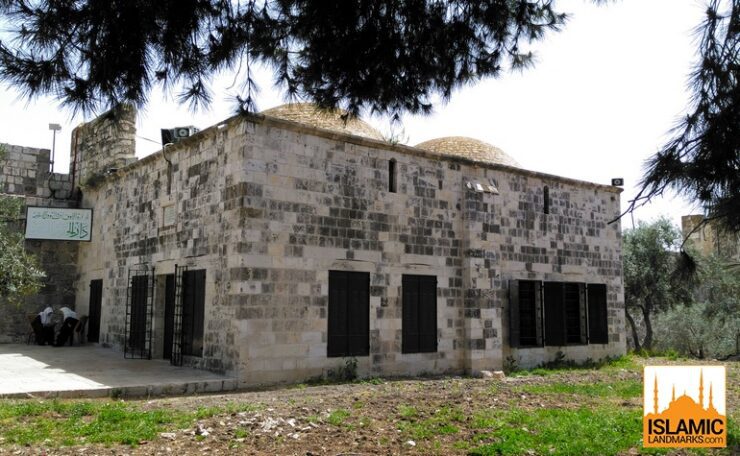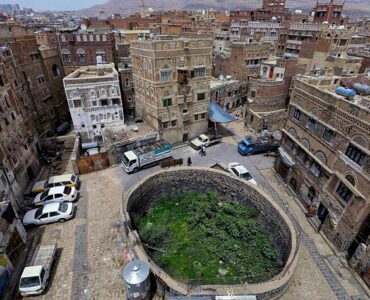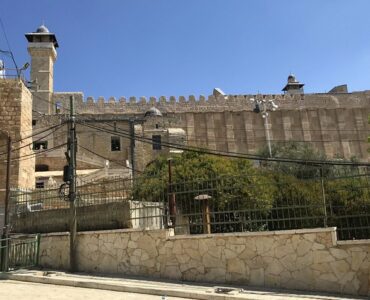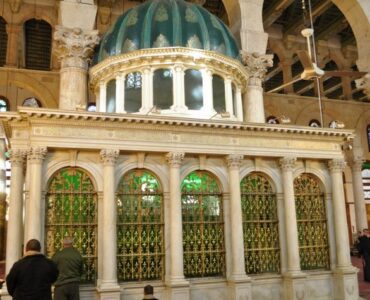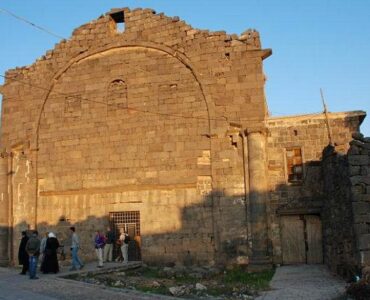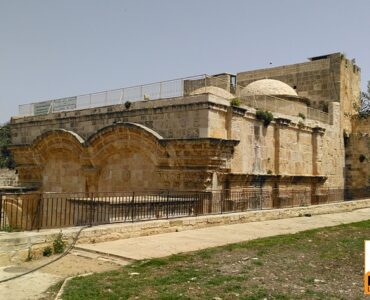This building, located at the rear end of the Aqsa platform is believed to be the place where the Prophet Sulaiman (عليه السلام) passed away while leaning on his staff. It presently functions as a girls school.
- Prophet Sulaiman (عليه السلام) ruled for 30 years, and his public work was largely carried out by the jinns. This was a punishment for their sin of making people believe that they were all-powerful, knew the unseen, and could foresee the future. As a prophet, Sulaiman (عليه السلام) had the duty to remove such false beliefs from them.
- And then the time destined by Allah Almighty came for the death of Sulaiman (عليه السلام). Like his life, his death too was unusual; and Allah devised it as a means to teach the people that the domain of the world of the unseen including the future is known to Allah alone. Thus, even the death of Sulaiman (عليه السلام) served an important purpose.
- Sulaiman (عليه السلام) was sitting holding his staff, overseeing the jinns at work. He died sitting in this position. For a long time, no one was aware of his death, for he was seen sitting erect. (The explanations of the story of Sulaiman (عليه السلام) were adapted from the exegesis of the Quran by the Islamic scholar, Ibn Kathir).
- The jinns continued with their toil, thinking that the king was watching over them. Days passed, and the king’s death became known only when his supporting stick, eaten by termites gave way and the body fell to the ground.
- Allah (ﷻ) makes mention in the Quran:“They worked for him as he desired, making arches, images, basins as large as reservoirs, and cooking cauldrons fixed in their places: “Work you, sons of David, with thanks!” But few of My servants are grateful.Then, when We decreed Solomon’s death, nothing showed them his death except a little worm of the earth that kept slowly gnawing away at his staff: So when he fell down, the jinns saw plainly that if they had known the unseen, they would not have tarried in the humiliating penalty of their task.” [34:13-14]
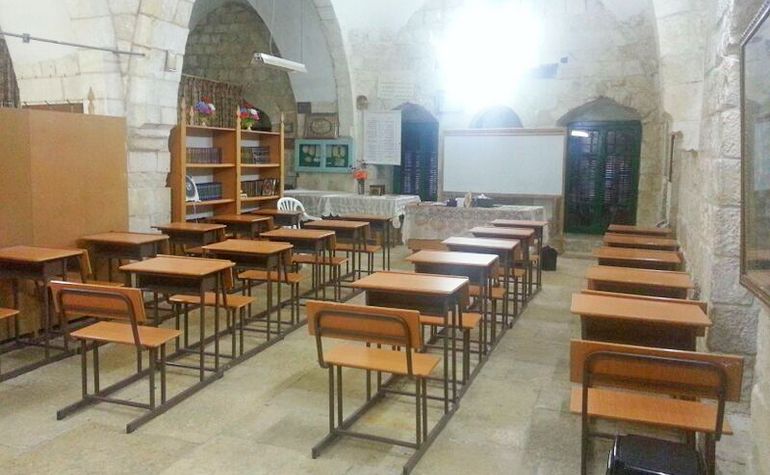

References: Stories of the Prophets – Ibn Kathir, Wikipedia, OnIslam.net.

